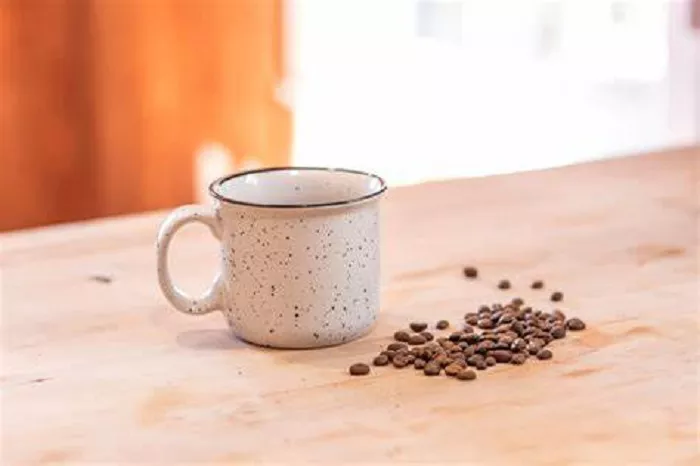Many coffee drinkers see “Fair Trade” and “Organic” labels on coffee packages. These terms sound good, but they mean different things. Fair Trade focuses on fair prices for farmers. Organic refers to how farmers grow the coffee. They are separate certifications with different rules.
Fair Trade coffee does not have to be organic. Organic coffee does not have to be Fair Trade. Some coffees have both certifications. Others have just one. To understand why, we need to look at each certification separately.
What Is Fair Trade Coffee?
Fair Trade is about fairness for coffee farmers. Small farmers often get very low prices for their coffee. Big companies pay little while making big profits. Fair Trade organizations try to fix this problem.
The Fair Trade system guarantees a minimum price for coffee. This price stays the same even when market prices drop. Farmers also get extra money (called a premium) for community projects. These might include schools, clinics, or clean water systems.
Fair Trade also has rules about working conditions. It bans child labor and forced labor. It supports farmer cooperatives where farmers work together. This gives them more power in the market.
What Is Organic Coffee?
Organic coffee follows strict farming rules. Farmers cannot use synthetic chemicals. This includes artificial fertilizers, pesticides, and herbicides. Instead, they use natural methods to grow coffee.
Organic farming protects the environment. It keeps chemicals out of the soil and water. It’s better for farm workers who don’t get exposed to harmful sprays. Many people believe organic coffee tastes better, though this depends on many factors.
To be certified organic, farms get inspected regularly. Inspectors check that farmers follow all the rules. This process takes time and costs money. Many small farmers can’t afford organic certification even if they farm organically.
The Overlap Between Fair Trade and Organic
Some Fair Trade coffee is organic. Some organic coffee is Fair Trade. But one doesn’t automatically mean the other. Here’s why they sometimes go together:
- Both systems care about sustainability. Fair Trade encourages good farming practices. Organic certification requires them.
- Some buyers want both certifications. European markets especially like organic Fair Trade coffee.
- Farmer cooperatives often pursue multiple certifications to get better prices.
However, many Fair Trade farmers don’t have organic certification. The process is expensive and difficult. Some farmers use organic methods but can’t afford to prove it. Others find it hard to control pests without any chemicals.
Why Most Fair Trade Coffee Isn’t Organic
Several factors explain why Fair Trade doesn’t equal organic:
- Cost: Organic certification costs more than many small farmers can pay. Fair Trade helps with fair prices but doesn’t cover certification costs.
- Climate: In some coffee regions, diseases and pests are severe. Farmers may need some chemicals to protect their crops.
- Knowledge: Switching to organic methods requires training. Not all farmers have access to this knowledge.
- Market demand: Some buyers don’t pay extra for organic. Farmers won’t certify unless they get higher prices.
Fair Trade organizations know organic is good. They often help farmers move toward organic methods. But they understand it takes time and support.
Benefits of Choosing Both Certifications
When coffee has both Fair Trade and organic labels, it offers double benefits:
- Farmers get fair prices for their crop
- Farming methods protect the environment
- Workers avoid harmful chemical exposure
- The coffee often comes from well-organized cooperatives
- Buyers support multiple good causes with one purchase
Coffee with both certifications usually costs more. But many drinkers think the extra cost is worth it. They want to support farmers and the environment.
How to Know What You’re Buying
Reading coffee labels carefully is important. Here’s what to look for:
- Fair Trade Certified: Look for the official Fair Trade logo
- USDA Organic: This is the U.S. organic standard
- EU Organic: The European Union’s organic label
- Double certifications: Some packages show both labels
Remember that some excellent coffee has neither certification. Some small farmers use great methods but can’t afford certifications. Some roasters build direct relationships with farmers instead of using certification systems.
The Future of Fair Trade and Organic Coffee
More coffee farmers are trying to go organic. Consumers increasingly want organic products. Fair Trade organizations are helping with this shift. They provide:
- Training in organic farming methods
- Help with certification costs
- Market connections to buyers who want organic
Climate change makes organic farming harder in some regions. New pests and diseases are appearing. Researchers are developing natural solutions to help farmers stay organic.
At the same time, Fair Trade is growing. More companies and consumers recognize its value. The system keeps improving to better serve farmers.
Making an Informed Choice
Now you know that Fair Trade doesn’t mean organic. When shopping for coffee, consider:
- What matters most to you – farmer welfare, environmental impact, or both?
- How much extra you can pay for certified coffee
- Whether to support small roasters with direct farmer relationships
Conclusion
Every purchase makes a difference. Choosing Fair Trade helps farming families. Choosing organic helps the planet. Choosing both does double good. But even being aware of these issues is an important first step.
The coffee industry keeps evolving. More options appear each year. By understanding certifications, you can find coffee that matches your values. Whether you choose Fair Trade, organic, both, or neither, your awareness helps push the industry toward better practices.
Related topics:
What Happens When You Quit Coffee Cold Turkey
How Profitable Is a Coffee Shop?
What Is the 90 Minute Coffee Rule?


